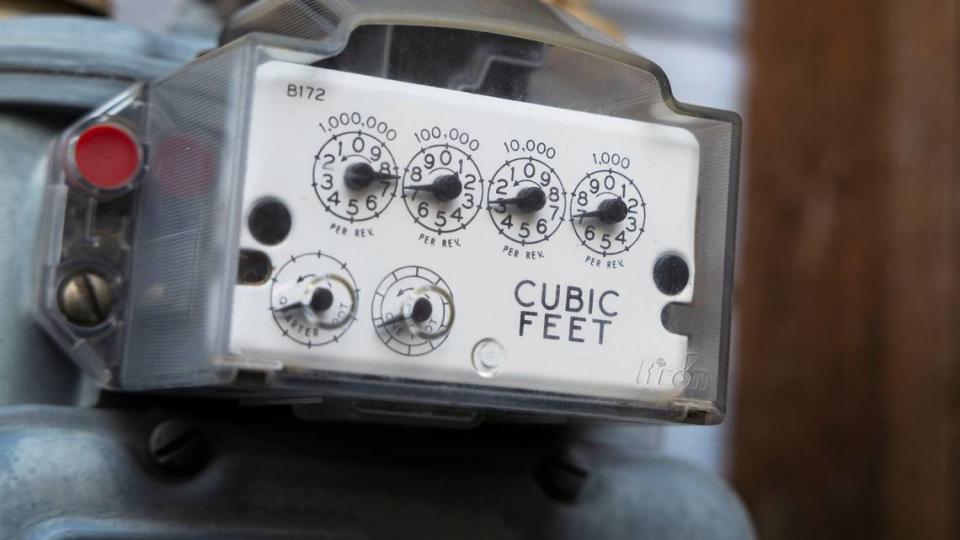These home electrification and efficiency improvements could cut costs and carbon | Opinion
- Oops!Something went wrong.Please try again later.
In February, one of us praised the mighty heat pump as an economical way to reduce carbon emissions and the cost of heating your home or business.
“But wait,” you might say, “you haven’t addressed some economic challenges.”
Replacing gas heating, drying and cooking with electricity could require an expensive upgrade in the capacity of electrical panels.
Low-income homeowners can’t afford the conversion. Landlords have little incentive to electrify heating systems that primarily benefit renters. Electricity costs would become high for leaky homes and businesses.
Relying on electricity for heating is risky if the electricity supply is unreliable. Expansion of electricity generation to meet increasing demand is hindered by regulations and local opposition. The gas industry and customers will resist the transition to electricity.
Let’s unpack each of these concerns to see how they can be addressed.
Regarding electrical panels, if your panel is rated at 100 amps or more, an expensive upgrade can be avoided if you start by weatherizing your home, identifying and plugging leaks, and adding insulation where it is thin. The Benton-Franklin Community Action Committee is a good place to start for financial assistance.

Then reduce your electricity needs further by replacing any resistance heating with heat pumps for your heating system, clothes drying and hot water heating, and with induction for cooking. Some heat pump water heaters and induction stoves are so efficient they run on 20 amp 110V service.
These upgrades will cut the electricity cost for those appliances by a factor of three. Then replace any gas appliance used for heating air and water, drying clothes and cooking with a heat pump or induction unit. Inflation Reduction Act and Climate Commitment Act subsidies are available for these upgrades.
If you also intend to replace your gas-powered vehicle with an electric vehicle, you must decide whether 20 amp 110V charging (about 4 miles of range per hour) is sufficient or if you need 50 amp 240V charging.
If the latter, you might still avoid a panel upgrade if you install a “smart splitter” that can charge your EV or dry your clothes, but not both at the same time. A study of homes in California found that doing this avoids the need for panel upgrades in 98% of homes. If you must upgrade your electrical panel, an IRA subsidy is available for low and middle-income families.
Low and middle-income families get much greater subsidies from IRA and state rebate programs, making conversions much more affordable for them.

Those who rent can also access IRA subsidies for electrification, as 110V portable heat pumps are available, which can move with renters, giving them long-term low-cost heating and cooling systems wherever they live.
There are also IRA subsidies of 20%-35% for weatherization of low and middle-income multifamily properties; consult your public utility district.
Some have argued that heating costs would go up for leaky electrified homes. But in Steve’s last column he showed that, no matter how leaky a home is, in Washington state it’s cheaper to heat a home with heat pumps than with gas. Reducing leaks will save heating expenses no matter how a home is heated.

Regarding reliability where electrical supply is fragile, gas heating systems will also fail if the power fails, because they also require fans to distribute the heat. A more robust system would include more nuclear power and solar panels (with a 30% subsidy by the IRA) to produce power for heat pumps and batteries to store energy overnight.
Widespread electrification of heating, drying, cooking and transportation will require more regional and national electricity production. Barriers from regulations and local opposition are hindering the expansion of production.
Call on Congress to support transmission reform, and think twice before you oppose adding local electricity production.
Finally, gas producers and some consumers resist electrification. Once consumers see the economic and health benefits of electrical heating and cooking, their resistance will recede.
Climate scientist Steve Ghan leads the Tri-Cities chapter of Citizens Climate Lobby. Senator Matt Boehnke is serving his first term representing the 8th Legislative District in the state senate, after serving two terms in the Washington House of Representatives.

